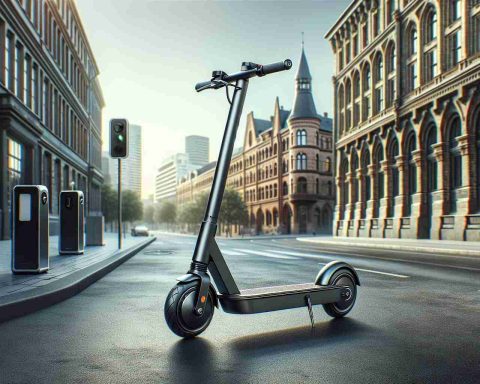The Eco-Friendly Bicycle That’s Changing the Game
The Pi-POP bicycle stands out as a groundbreaking alternative to traditional electric bikes. Utilizing cutting-edge supercapacitors instead of lithium batteries, this design is a testament to innovation in sustainable transport. Lauded at the 2024 Lépine competition, it has captured the attention of eco-conscious cyclists.
At the heart of the Pi-POP’s innovative technology are supercapacitors that efficiently store and release energy. This unique feature captures the cyclist’s energy during easy pedaling, descents, or while braking. The energy collected is ingeniously utilized to assist during challenging moments such as starting and climbing, powering a motor that delivers an impressive 250 watts. Reports suggest that this bike can facilitate climbs of up to 50 meters, making steep inclines much more manageable, although users still need to exert effort, especially since the bike weighs 21 kg.
The Pi-POP not only offers convenience but also aligns with growing environmental concerns. By eliminating traditional batteries, it diminishes the demand for scarce resources, thus reducing its ecological footprint. Recent surveys indicate that a significant majority of the French population prioritize environmental factors in their purchasing decisions, making the Pi-POP an attractive choice for conscious consumers. However, potential buyers should note the bike’s cost of €2,690, as governmental subsidies for electric bikes are no longer available.
The Pi-POP Bicycle: Revolutionizing Sustainable Cycling
The cycling community is witnessing a significant shift towards sustainability with the introduction of the Pi-POP bicycle. This innovative mode of transport not only turns heads but also paves the way for a future where cycling and environmental responsibility go hand in hand.
Features of the Pi-POP Bicycle
One of the standout features of the Pi-POP is its reliance on advanced supercapacitor technology. Unlike traditional electric bikes that depend on lithium-ion batteries, the Pi-POP harnesses energy more efficiently, prolonging its lifespan and reducing maintenance issues. Supercapacitors can charge and discharge energy rapidly, allowing for a smoother and more responsive riding experience.
# Specifications:
– Weight: 21 kg
– Motor Power: 250 watts
– Climbing Capacity: Facilitates climbs of up to 50 meters
Pros and Cons
Pros:
– Eco-Friendly Design: Significantly reduces dependence on lithium batteries.
– Efficient Energy Usage: Captures and utilizes energy during the ride, enhancing rider effort.
– Lightweight Construction: Despite being a bit heavier than traditional bicycles, it offers an appealing balance of weight and power.
Cons:
– Pricey Investment: Retailing at €2,690, the Pi-POP may deter budget-conscious consumers.
– Limited Government Subsidies: With the discontinuation of subsidies for electric bikes in many regions, the cost becomes a notable factor.
Use Cases
The Pi-POP bicycle caters to a variety of users, from urban commuters seeking an eco-friendly mode of transport to adventure enthusiasts looking to tackle hilly terrains without the worry of traditional battery weight. It is especially beneficial for:
– Commuters: Reducing travel time while minimizing environmental impact.
– Recreational Cyclists: Enjoying leisure rides with the support of innovative energy capture.
– Eco-Conscious Consumers: Aligning with personal values focused on sustainability.
Market Insights and Trends
Recent surveys have shed light on a growing trend among French consumers; over half prioritize ecological factors when making purchases, reflecting a wider global shift towards sustainability. The Pi-POP not only taps into this trend but also sets a compelling example for future developments in the cycling industry.
Innovations Shaping the Future
The emergence of bikes like the Pi-POP marks a transformative moment in transportation technology. By advancing supercapacitor technology, manufacturers are not only enhancing cycling experiences but also addressing critical environmental issues related to battery production and disposal.
Conclusion
As cities become more congested and the climate crisis escalates, the Pi-POP bicycle emerges as a practical solution with the potential to reshape commuting habits. With its innovative technology and eco-conscious design, it challenges the status quo of electric bicycles and encourages a new wave of sustainable transportation.
For more information on innovative cycling solutions, visit Bike.org.


















